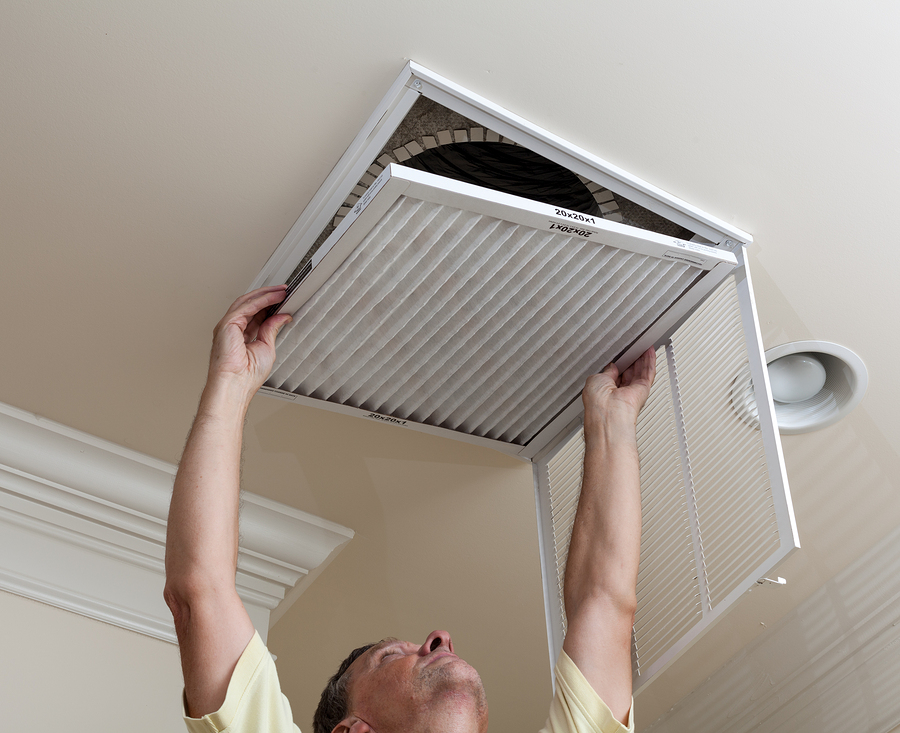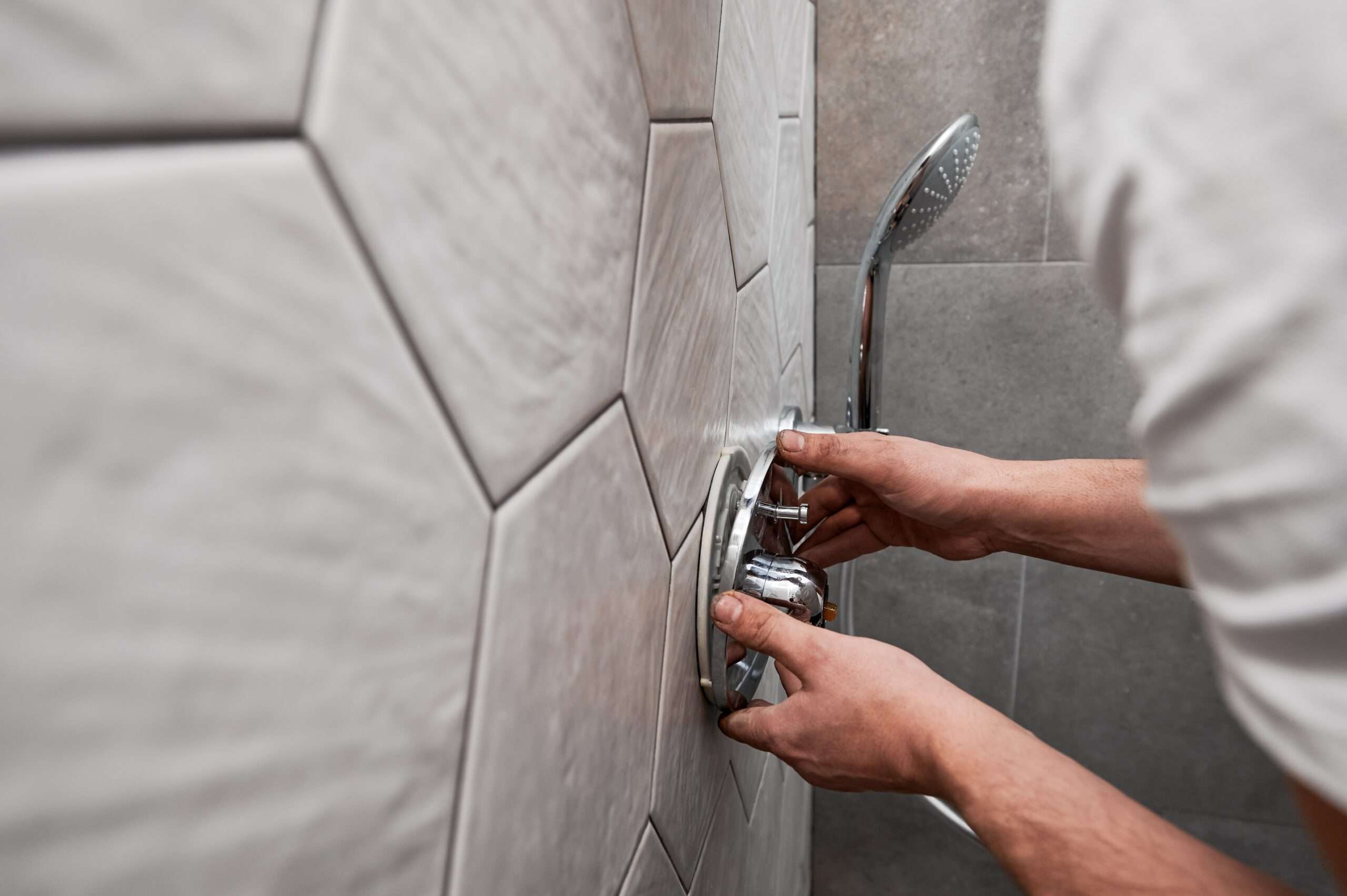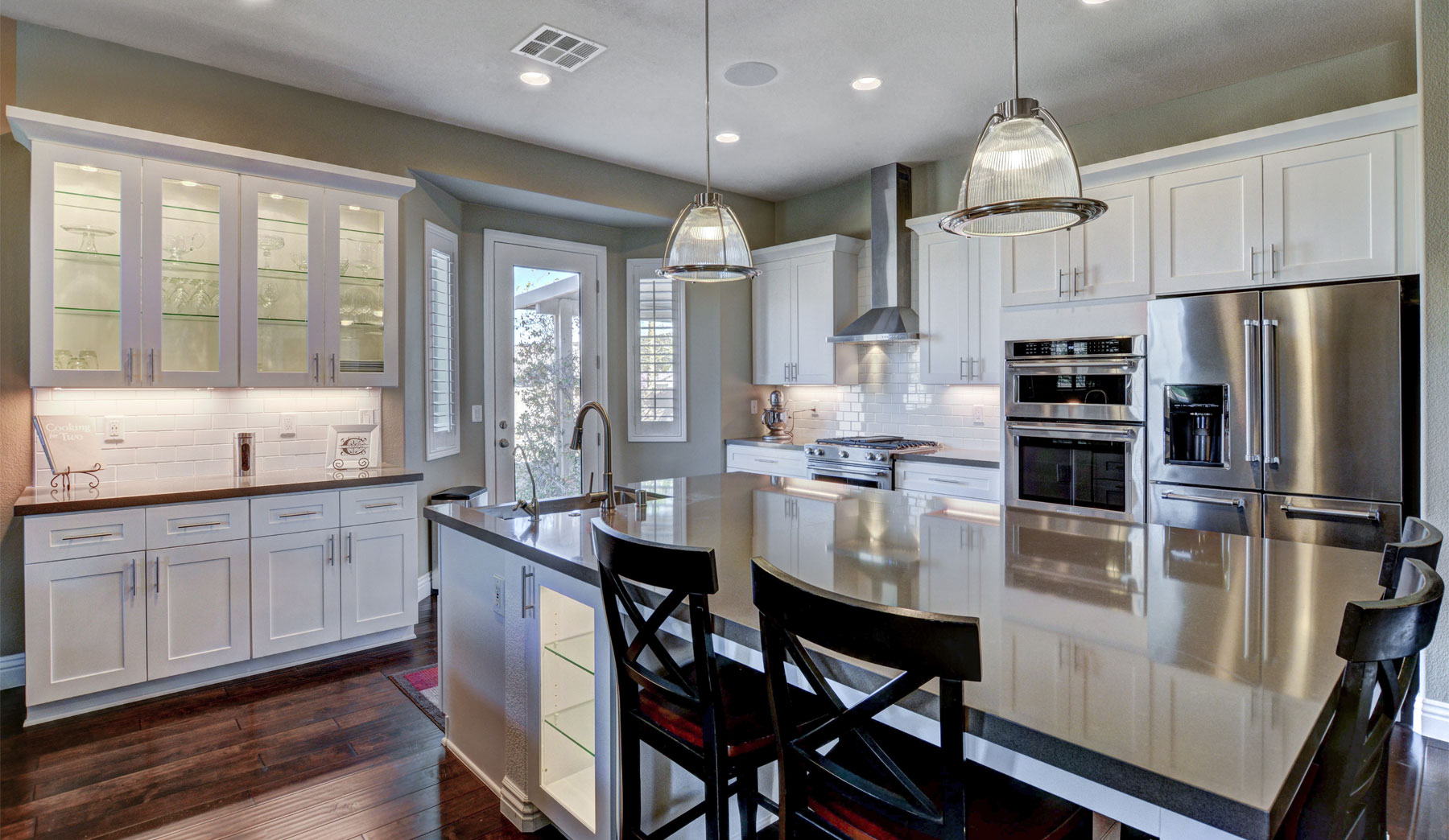A home is like a garden. It must be constantly tended to and maintained. If a home is not adequately maintained, more significant problems may exist. Here are five home maintenance tips that most people can accomplish without training or expertise.
1) Removing Lime Deposits on Bathroom Fixtures
In Las Vegas, we experience high hard water build-up levels on our plumbing fixtures. Regular cleaning can prevent the buildup of the staining material. An acid dissolves lime or hard-water mineral buildup. Vinegar or lemon juice may be rubbed over the stain to dissolve. Do not leave on stain too long, as acids will eventually damage the surface of porcelain enamel. In the end, make sure you rinse thoroughly. If lime deposits quickly reappear, you may have a leaky faucet that needs to be repaired.
2) Cleaning Gas Cooktops
Over time gas cooktops tend to get stubborn soil. If gas cooktops are not adequately maintained and cleaned, then you may experience trouble with the ease of lighting the cooktop or turning the knobs. First, make sure that the cooktop has been cooled. Check your manufacturers’ recommendation for cleaning the gas cooktop. Start with a damp cloth (warm water) or paper towel. If greasy or sticky soil, use warm, sudsy water on a cloth, paper towel, or sponge; rinse with a clean cloth; wipe dry. If soil is stubborn, lay sudsy, wet cloth or towel over the spot and leave a few minutes to loosen the soil (semi-soaking). And/or rub with a nylon net scrubber or soft
plastic mesh pad. Do NOT use abrasive pads or scouring powders, as these can permanently scratch the porcelain finish.
Control knobs are washed in warm suds with a cloth or brush, rinsed, and dried. If they come off, they’re easier to clean, but do not soak them.
The area under drip pans may be washed with warm suds, rinsed, and dried. Use a paste of baking soda and water on difficult spots. A soap-filled steel wool pad may be used occasionally if necessary, or a plastic mesh pad.
Gas burners and grates may be removed for cleaning. Soak grates in boiling water and detergent for about a half-hour if very dirty; then scrub with a brush, rinse and dry. A little ammonia may be added to the soaking solution if they are very greasy. Soak burners in hot, soapy water to soften grease and grime. Clean with a brush. Do not use scouring powder which will clog the holes. The metal ring with holes in it may come off the
burner for cleaning. If the holes in the burner are stopped up, clean with a fine wire, hairpin, paper clip, or pipe stem cleaner. Don’t use toothpicks as they could break off and clog the holes. Rinse burners in hot water.
3) Water Heater Care
Again, our hard water in Clark County can cause havoc on our plumbing appliances. One of the easiest things we can do to extend our water heater’s life is to drain it. Once every other month, draw off a bucket or so of water from the spigot at the bottom of the water heater tank until the water runs clear. This removes sediment, which reduces the efficiency of the water heater.
4) Replace air filters
In Southern Nevada, it is common to use an air conditioner seven months of the year. Did you know that air conditioners need to breathe? When an air conditioner exhales is the air you feel out of the duct, but the inhaling is the air return pulling air into the system. This air return is designed to pull out some pollutants floating in our air and replenish them with filter air. When you replace your filter every 30 days (or, in some cases, 90 days with the fancier filter), you allow your air HVAC system to breathe easier. During heavy usage or in dustier areas, the filter may need to be changed more often.
Failure to replace the filter during recommended months may cause long-term damage to the air conditioning system, leading to a costly repair. Failure to properly replace filters could void warranties with a manufacturer in many cases.
5) Caulking Windows
Unfilled gaps and cracks in the foundation, around windows and doors, vents, and so on, may let cold or hot air in the same as leaving a window open. A 1/8 inch opening around just two-door frames can let in as much cold air as a 12-inch window opened 6 inches all winter long. Caulk is used around outside window and door frames to fill outside walls and foundation cracks. The money you spend on caulking or weather stripping is usually recovered in one heating or cooling season or less.
A clean joint is the first and most crucial step. Clean away all old caulk and loose paint or dirt and apply new caulk to dry surfaces. The most common and easiest to use caulking comes in cartridges, for which you will need a caulking gun. A good rough estimate is that you will need 1/2 cartridge per window or door, 4 for the foundation sill, and at least one more for around faucets, vents, pipes, electrical outlets, and so on.
Cut off about 1/2 inch of the cartridge tip at a 45-degree angle and puncture the tip seal with a nail. You can use the nail later to act as a stopper for any unused caulk. With a bit of practice on a joint that’s not visible, you’ll soon be able to lay a uniform-wide bead that overlaps both sides for a good seal. Finish the surface with a moistened finger, but that’s not necessary.
All of the items above can be accomplished in a few short hours. Spending a few minutes on your home each week will eventually lead to a healthier home. In a future blog, you will hear me discuss home maintenance and how it can make your home more efficient.
If you need help with home maintenance or repair, please call our kitchen and bathroom contractors from Las Vegas Remodeling and Construction at 702-425-7272 or email info@www.lvremodel.com.




